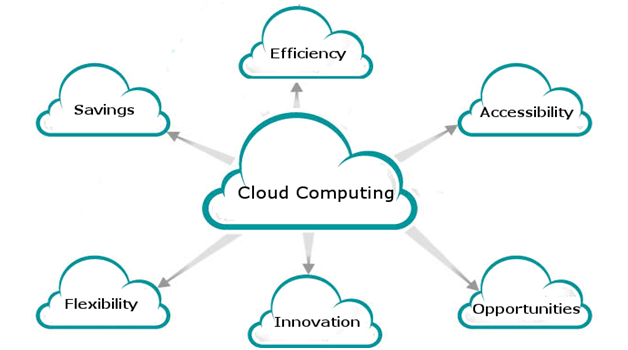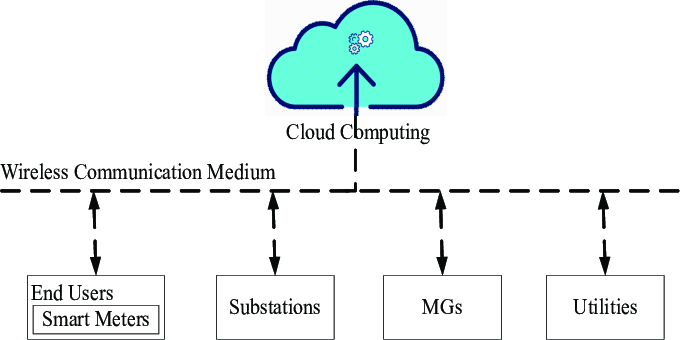
- Introduction
- Importance of Cloud Computing in India
- Top Cloud Computing Companies in India
- Factors Driving the Growth of Cloud Computing in India
- Key Cloud Computing Services Offered
- Challenges in the Indian Cloud Computing Market
- Benefits of Cloud Computing for Businesses in India
- Future of Cloud Computing in India
- Conclusion
Cloud computing has revolutionized the way businesses store, manage, and process data, offering scalable and cost-effective solutions for organizations of all sizes. By leveraging cloud technology, companies can enhance operational efficiency, improve collaboration, and ensure seamless access to critical resources from anywhere in the world. Cloud Computing Course provides various deployment models, including public, private, hybrid, and multi-cloud environments, each catering to different security, scalability, and compliance needs. Additionally, it offers different service models such as Infrastructure as a Service (IaaS), Platform as a Service (PaaS), and Software as a Service (SaaS), enabling businesses to choose the right level of control and flexibility.
Become a Cloud Computing expert by enrolling in this Cloud Computing Online Course today.
Introduction
Cloud computing has revolutionized how businesses operate, offering scalable and flexible computing resources over the internet. In India, cloud adoption has been growing rapidly as companies seek more efficient ways to manage their infrastructure, reduce costs, and increase productivity. By leveraging Cloud-Based Applications, businesses can access a variety of computing resources such as servers, storage, networking, and Firewall and Antivirus Software on a pay-per-use basis. This blog explores the top cloud computing companies in India, the factors driving their growth, and the future of cloud computing in the country. Security remains a top priority in cloud computing, as cyber threats continue to evolve. Organizations must implement robust security measures such as data encryption, identity and access management (IAM), multi-factor authentication (MFA), and continuous monitoring to protect sensitive information from unauthorized access and cyberattacks.
Importance of Cloud Computing in India
Cloud computing has become a game-changer in India due to its ability to support businesses of all sizes. With India’s growing digital transformation, cloud services have enabled companies to scale operations, improve collaboration, and reduce infrastructure management costs. Cloud computing is particularly important for small and medium-sized enterprises (SMEs), as it provides access to enterprise-level technologies without the need for large upfront investments.Additionally, the flexibility and scalability of cloud solutions help organizations innovate faster and stay competitive in a rapidly evolving business landscape. The benefits of cloud computing extend beyond Data Security, providing enhanced scalability, disaster recovery, cost efficiency, and automatic updates. Businesses can scale resources up or down based on demand, ensuring optimal performance while minimizing costs. Furthermore, cloud providers offer built-in redundancy and backup solutions, ensuring business continuity in the event of system failures or cyber incidents.

Top Cloud Computing Companies in India
India has several global and homegrown cloud computing companies offering a range of services. Here are some of the top players in the Indian market:
- Amazon Web Services (AWS): AWS is one of the largest and most popular cloud service providers globally. In India, AWS offers a wide range of services, including computing power, storage, databases, machine learning, analytics, and more. AWS is widely used by startups, enterprises, and government organizations for cloud infrastructure.
- Microsoft Azure: Microsoft Azure is another dominant player in the cloud computing space. Azure offers cloud services such as IaaS, PaaS, and SaaS and is known for its integration with Microsoft’s suite of software products, such as Office 365, Windows Server, and SQL Server. It has a strong presence in India and is used by many large enterprises.
- Google Cloud: Google Cloud is known for its strengths in Data Classification, machine learning, and artificial intelligence. Google’s cloud services, such as Compute Engine, Cloud Storage, and BigQuery, cater to businesses that require high-performance computing and big data solutions.
- IBM Cloud: IBM Cloud offers a hybrid cloud solution that combines public, private, and on-premises infrastructure. It is particularly known for its advanced AI and machine learning offerings and is widely used by enterprises needing robust and secure cloud environments.
- Oracle Cloud: Oracle Cloud is a key player in the cloud space, especially for businesses seeking enterprise-level solutions. Known for its strong database offerings, Oracle provides IaaS, PaaS, and SaaS solutions, which are widely used by large organizations, especially in finance and supply chain management.
- TCS Cloud Services: Tata Consultancy Services (TCS) offers a comprehensive suite of cloud solutions to help businesses transform digitally. Their offerings include cloud strategy, migration, management, and automation services. TCS serves a diverse set of industries, including banking, healthcare, and retail.
- Wipro Cloud Solutions: Wipro provides end-to-end cloud computing services, including cloud strategy, consulting, migration, and application management. They help businesses optimize their cloud usage for cost efficiency and enhanced performance. Wipro’s cloud services are used by various enterprises in industries such as finance, healthcare, and retail.
- Infosys Cloud Services: Infosys offers cloud consulting, application management, and cloud transformation services. Their expertise in multi-cloud environments allows them to help businesses adopt a combination of cloud services from different providers to meet their specific needs.
- HCL Technologies Cloud: HCL Technologies delivers a wide array of Cloud Security Service , from strategy and consulting to implementation and management. They focus on helping enterprises accelerate their cloud journeys and optimize their cloud usage for enhanced productivity and efficiency.
- Zoho Cloud: Zoho provides cloud-based software solutions for businesses of all sizes. Its cloud offerings include CRM, collaboration tools, project management software, and more. Zoho’s cost-effective and scalable solutions make it a popular choice among startups and SMEs in India.
Advance your Cloud Computing career by joining this Cloud Computing Online Course now.
Factors Driving the Growth of Cloud Computing in India
As Indian businesses increasingly adopt digital technologies, cloud computing has become essential for enabling innovation and streamlining operations. Cloud computing helps organizations reduce costs related to hardware, software, and infrastructure, making it especially beneficial for small and medium enterprises (SMEs).Cloud services offer on-demand scalability, allowing businesses to grow without worrying about physical infrastructure limitations. The Indian government has encouraged cloud adoption through initiatives like “Digital India,” which aims to promote IT infrastructure and services across the country. With the rise in Internet usage, particularly in rural and semi-urban areas, more businesses are moving to the cloud to take advantage of its accessibility and affordability.
Aspiring to lead in Cloud Computing? Enroll in ACTE’s Cloud Computing Master Program Training Course and start your path to success!
Key Cloud Computing Services Offered
Cloud computing offers a variety of services to cater to different business needs in Cloud Computing Course:
- Infrastructure as a Service (IaaS): IaaS provides businesses with virtualized computing resources over the Internet, including servers, storage, and networking.
- Platform as a Service (PaaS): PaaS offers a platform that allows businesses to develop, run, and manage applications without dealing with the infrastructure. It is ideal for developers building applications.
- Software as a Service (SaaS): SaaS delivers software applications over the internet, eliminating the need for organizations to install and maintain software. Examples include customer relationship management (CRM) software and enterprise resource planning (ERP) systems.
Challenges in the Indian Cloud Computing Market
Despite its rapid growth, the cloud computing market in India faces several challenges. While cloud services provide robust security features, businesses still worry about the safety of their data, especially regarding regulatory compliance. Although internet infrastructure is improving, it still faces challenges related to high latency and connectivity issues, which can impact the performance of cloud services. There is a shortage of skilled professionals proficient in cloud technologies, which can make it difficult for businesses to implement and manage cloud solutions effectively.

Benefits of Cloud Computing for Businesses in India
- Cost Reduction: Cloud computing helps businesses eliminate the need for expensive hardware and infrastructure, providing a cost-effective solution.
- Improved Collaboration: Cloud-based tools enhance collaboration among teams, allowing them to work seamlessly from any location.
- Enhanced Security: Cloud providers implement advanced Address Resolution Protocol to protect data, ensuring that businesses can maintain the confidentiality and integrity of their information.
- Business Continuity: Cloud computing enables businesses to back up data and access it from multiple locations, ensuring continuity during disruptions like natural disasters or technical failures.
- Faster Innovation: Cloud computing allows companies to rapidly deploy new applications and services, reducing the time to market.
Want to ace your Cloud Computing interview? Read our blog on Cloud Computing Interview Questions and Answers now!
Future of Cloud Computing in India
The future of cloud computing in India looks bright, driven by the continued adoption of digital technologies, government initiatives, and advancements in cloud infrastructure. Cloud adoption will continue to grow as businesses of all sizes realize the benefits of flexibility, scalability, and cost savings. Additionally, with emerging technologies like artificial intelligence (AI) and machine learning (ML), cloud computing will play a key role in driving innovation and efficiency in various industries. The expansion of cloud data centers across India is enhancing accessibility and performance. Growing investments in cloud security are ensuring safer and more reliable digital operations. As businesses embrace hybrid and multi-cloud strategies, the demand for skilled cloud professionals is rising. Government policies and regulatory support are further accelerating cloud adoption across industries. Small and medium enterprises (SMEs) are leveraging cloud computing to compete with larger organizations. The rise of edge computing and 5G technology will further enhance cloud capabilities and efficiency.
Conclusion
Applications, networks, and data are being protected today like never before in the fast-moving world of digital. The main IAM tool, DevSecOps integration tools, and monitoring and logging solutions are part of an enterprise security strategy. Organizations can use all these solutions to enforce strict access controls, integrate security seamlessly with the development pipeline, and gain real-time visibility of their systems to detect and respond to potential threats. Cloud Computing Course can help employees understand how to effectively implement and manage these solutions to enhance overall security. Adopting a layered security approach that combines these tools is designed to help businesses safeguard their assets while meeting regulatory requirements and ensuring their chance of breaches and attacks.





